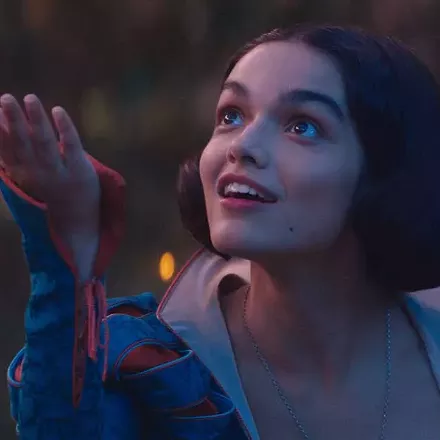Nostalgia and the movies of 1984
What we remember as the best, and why
By Scott Renshaw @scottrenshawAs the calendar turned to 2024, I began mentally cracking my knuckles. It was time to celebrate the movie year of 1984 as it turns 40—and by most objective measures, it was a pretty big one. Ghostbusters, The Karate Kid and The Terminator launched franchises that are still going strong today; successful sequels including Indiana Jones and the Temple of Doom and Star Trek III: The Search for Spock suggested the long life those franchises would continue to have. Splash and Beverly Hills Cop turned Tom Hanks and Eddie Murphy, respectively, into box-office stars. From Purple Rain to Gremlins, from Sixteen Candles to A Nightmare on Elm Street, there were popular favorites in every genre. And that's saying nothing of commercial duds like The Adventures of Buckaroo Banzai Across the 8th Dimension, Repo Man and This is Spinal Tap which eventually became cult classics.
It also so happens that in March 1984, I started working at a local movie theater as a teenager. I saw everything that it was possible to see, even things that wouldn't ordinarily have been "my thing"—like eventual Oscar-winner Amadeus—and developed a more expansive palate for what I could appreciate. So there was every reason for me to ponder crafting an essay with one of those provocative titles like, "Was 1984 the Best Movie Year Ever?"
Then, just as I was getting started, the Washington Post published a poll that asked people a variety of questions about when they felt certain things in America were at their best. Some of those things were social, like "when were families happiest;" others were pop-cultural, like when was the best music, television, sports and, yes, movies. Regardless of the demographics of respondents, they generally believed that the societal peaks were when they were approximately 10 years old, and the pop-culture peaks when they were approximately 13-14 years old. It didn't matter whether you were 30 or 70: Life was best when you were a kid, and art was best when you were a teenager.
Intuitively, many of us probably already understood this phenomenon to be true. Yet it was still fascinating to see it codified in a way that clarified not just that nostalgia is a hell of a drug, but that the majority of Americans get hooked on it so young. Movies might have been a bit of an outlier in my own case—I was 17 in 1984—but it was still about an emotional impression, far more than a developed aesthetic sensibility. Movies overall didn't necessarily peak in 1984. I was just ready to fall in love with them then.
It's also interesting to contemplate how 1984 hit a sweet spot not just for my ability to see movies in theaters, but for my ability to see movies anywhere. The VHS revolution suddenly made it possible to catch up with older movies as they appeared in a home-viewing format for the first time—and also part of the reason those aforementioned box-office flops-turned-cult hits could have a second life. I could watch Beverly Hills Cop, but also go back to see the earlier Eddie Murphy performances in 48 HRS. and Trading Places that I'd been too young to see in theaters. Video stores were amazing resources for budding cinephiles, so I was never a snob about theaters being the only way to see a movie, even as I was able to recognize the amazing collective experience of an audience cheering for The Karate Kid or laughing at Beverly Hills Cop—and I wanted to watch in a theater if I could, because I knew it might be six months before that home-viewing option.
As this movie summer has begun with several under-performing theatrical releases, anxious think-pieces have pondered whether theatrical movie-going is in its death throes, with suspects including non-stop franchises and shortened theatrical windows before theatrical films hit streaming services. I'm not pretending I have the answer, because if I did, I could be making a hell of a lot more money than I do now.
But I worry that the real problem is a movie industry that isn't even trying anymore to create the next generation of movie-lovers, while constantly repackaging the stuff from my own youth. It doesn't matter to me if anyone else thinks movies were best in 1984. All I want is for today's teens to think movies were best in 2024. You don't even get the chance to have nostalgia for something that never was.
More by Scott Renshaw
-
Boulder Weekly Film Critic Talks About Sundance Move to Colorado
Discussing the logistics, finances and politics of the festival's relocation
- Apr 3, 2025
-
Film Reviews: New Releases for April 4
A Minecraft Movie, The Friend, Hell of a Summer, Bob Trevino Likes It, Freaky Tales
- Apr 3, 2025
-
April David Lynch Film Festival at Broadway Centre Cinemas
The Elephant Man, Eraserhead, Mulholland Dr., Blue Velvet and more to celebrate the late director.
- Apr 2, 2025
- More »
Latest in Film Reviews
Readers also liked…
-
Sundance 2025 wrap-up plus February special screenings
Uncertainty about the future location shifts focus away from the movies
- Feb 5, 2025










